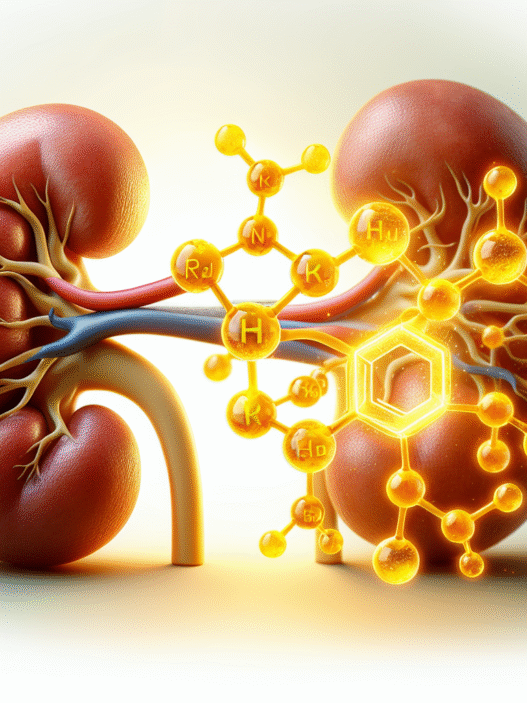Exploring Berberine for Hair Health
Berberine has garnered attention for its potential effects on hair health. Understanding how it impacts hair growth and its relationship with hair loss can be crucial for those considering this supplement.
Impact on Hair Growth
Research indicates that berberine may promote hair growth by targeting Axin2 and activating the Wnt/β-catenin pathway, a process significant for hair follicle health (PubMed). This pathway is involved in regulating hair development and ensuring that follicles function optimally. Additionally, berberine’s anti-inflammatory properties and ability to support insulin sensitivity are closely tied to hair follicle viability. Inflammation can often hinder hair growth, so reducing it may create a more favorable environment for hair follicles.
Moreover, there is evidence suggesting that berberine can help mitigate hormone-related issues like androgenic alopecia, commonly known as pattern baldness. This indicates its potential use in managing hair thinning for both men and women.
| Mechanism | Effect on Hair Health |
|---|---|
| Wnt/β-catenin pathway activation | Promotes hair growth |
| Reduces inflammation | Supports hair follicle health |
| Addresses hormone issues | May slow hair thinning |
Potential for Addressing Hair Loss
Despite its potential benefits, it’s essential to recognize that berberine can also lead to hair loss in some individuals. This paradox may stem from its hormonal effects, which could trigger hair loss in certain contexts. Berberine influences various biological pathways, including cell growth and inflammation, both of which can impact hair follicles adversely when not balanced properly (Aspect Health).
For those considering berberine supplementation to address hair loss, awareness of these dual effects is crucial. Consulting with a healthcare professional can provide insights into its safety and effectiveness tailored to individual circumstances.
To explore more about the benefits and risks of berberine, check out our articles on is there a downside to taking berberine? and who shouldn’t take berberine?.
Understanding Berberine Effects
Berberine is a compound derived from various plants, and its effects on health have drawn attention in holistic wellness. Exploring its influence on hormones, cell growth, and inflammation can provide insights into whether does berberine cause hair loss?.
Hormonal Influence
Berberine’s effect on hormones is significant, as it can trigger changes that may contribute to hair loss in some individuals. Research indicates that this compound influences hormonal balance, particularly relating to insulin sensitivity and androgen levels, factors known to impact hair growth. In some cases, hormonal fluctuations can result in hair thinning or loss.
Impact on Cell Growth
The relationship between berberine and cell growth is complex. Berberine has been shown to affect the growth rate of cells positively, potentially promoting healthy hair follicles. However, the nuances of its effects can vary among individuals. It’s important to recognize that while berberine may support healthy cell growth, its hormonal influence may also lead to adverse effects such as hair loss. Understanding these dynamics is crucial for anyone looking to manage their hair health effectively.
Relationship with Inflammation
Chronic inflammation is a known factor contributing to hair loss. Berberine possesses anti-inflammatory properties, which can be beneficial for reducing inflammation in the body. By addressing inflammation, berberine may create a healthier environment for hair growth. Conversely, inflammation can lead to various health issues that might indirectly contribute to hair loss. Thus, managing inflammation could be a key strategy in promoting better hair health.
The interconnected effects of berberine on hormonal levels, cell growth, and inflammation highlight the importance of a cautious approach. Those interested in utilizing berberine for hair health should consider both its potential benefits and risks. For more information on its overall health impact, explore the pros and cons of berberine.
Berberine and Hair Loss
Understanding the relationship between berberine and hair loss is essential for those considering this supplement for various health benefits. While some individuals may experience hair loss due to berberine, others might find it beneficial for addressing certain types of hair loss.
Factors Contributing to Hair Loss
Several factors can influence hair loss when using berberine. One significant aspect is its effect on hormones. It is noted that berberine’s hormonal influence can trigger hair loss in some individuals. Hormonal imbalances are a common cause of hair thinning or falling out, and when taking berberine, these hormonal changes could potentially exacerbate underlying issues.
Additionally, berberine’s interaction with cell growth and inflammation can play a role in hair health. Changes in cell growth patterns may impact hair follicles, while elevated inflammation levels can disrupt the hair growth cycle. Users must be aware of these conditions to understand how berberine could potentially affect their hair.
| Factors Contributing to Hair Loss | Description |
|---|---|
| Hormonal Influence | Berberine can affect hormone levels, potentially leading to hair loss in some individuals. |
| Cell Growth | Changes in cell growth caused by berberine may disrupt hair follicles. |
| Inflammation | Increased inflammation levels can interfere with the hair growth cycle. |
Mitigating Hair Loss Risks
To mitigate the risks of hair loss associated with berberine, individuals can adopt various strategies. First, it may be beneficial for users to monitor their hormonal levels and consult healthcare professionals for personalized assessments. Regular monitoring can help identify any negative hormonal changes that may impact hair health.
In addition, incorporating anti-inflammatory foods into the diet may help alleviate potential inflammation caused by berberine. Foods rich in omega-3 fatty acids, antioxidants, and vitamins can support hair health and overall well-being.
Moreover, consulting a healthcare provider before starting berberine is crucial. This action allows individuals to discuss any pre-existing conditions and medications that may interact with berberine’s effects. Understanding the full scope of interactions can help prevent adverse side effects, including hair loss. For further insights regarding the precautions of using berberine, refer to our article on is there a downside to taking berberine?.
By being proactive in addressing hormonal influences and inflammation, individuals may reduce the risk of hair loss while enjoying the other benefits that berberine can offer.
Berberine Benefits Beyond Hair
Health Benefits Overview
Berberine is gaining attention not only for its potential effects on hair health but also for its wide-ranging benefits in various health conditions. This natural compound has been studied extensively for its promising effects in managing several medical conditions, making it a topic of interest for those invested in functional medicine and holistic wellness.
| Health Condition | Potential Effects of Berberine |
|---|---|
| Diabetes | Lowering glucose levels and improving insulin response (WebMD) |
| High Cholesterol | Reducing total cholesterol, “bad” cholesterol (LDL), and triglycerides, particularly in individuals resistant to other medications (WebMD) |
| Heart Disease | Potential support for overall cardiovascular health (WebMD) |
| Polycystic Ovary Syndrome (PCOS) | Enhancing cholesterol management, lowering waist-to-hip ratio, and improving insulin response (WebMD) |
Therapeutic Potential for Various Conditions
Berberine’s therapeutic potential extends to several health conditions beyond those mentioned in the table. For example, individuals with PCOS may find that berberine helps control cholesterol levels, enhance insulin sensitivity, and manage weight issues. Some studies suggest that it can also support higher fertility rates by improving menstrual regularity and promoting ovulation (Aspect Health).
Moreover, berberine appears to reduce leptin resistance and inhibit lipoprotein lipase, a key factor in fat storage, which is particularly beneficial for those struggling with weight management and metabolic issues.
Given the diverse range of benefits, many individuals interested in holistic health are exploring the numerous ways berberine may assist in managing chronic conditions. For insights on the potential downsides or cautions regarding berberine usage, consider reading about is there a downside to taking berberine? and consulting with healthcare professionals for personalized guidance.
Berberine and Well-being
Considerations for Usage
When considering the use of berberine, individuals should be aware of several important factors. First, it is essential to consult with a healthcare provider before starting any supplementation, especially for those managing conditions such as hair loss or underlying health issues. Although there is no direct evidence linking berberine to hair loss, improper use may cause side effects that could affect overall hair health. For example, hormonal changes or nutrient deficiencies induced by incorrect dosages might harm hair vitality (Kopelman Hair).
Berberine has shown promise in treating various health conditions, including diabetes, high cholesterol, and polycystic ovary syndrome (PCOS). Understanding one’s health status and potential interactions with existing medications is crucial. Women with PCOS, for instance, might see additional benefits in weight management and metabolic health when taking berberine (Aspect Health).
Dosage and Safety Guidelines
Determining the appropriate dosage of berberine can vary based on individual health conditions and goals. A typical recommended dosage ranges from 500 mg to 1500 mg per day, divided into several doses taken with meals. Here is a simple breakdown:
| Dosage Recommendations | Timing |
|---|---|
| 500 mg | 2-3 times daily before meals |
| 1500 mg | Taken in divided doses throughout the day |
It is important to start at the lower end of this range and gradually increase as needed while monitoring for any side effects.
Berberine can have mild side effects, including gastrointestinal discomfort, constipation, or diarrhea. If experiencing these issues, adjusting the dosage or consulting a healthcare professional is advisable. Additionally, individuals should be cautious if they are pregnant, nursing, or have existing health conditions, as certain groups may need to avoid berberine entirely.
Using berberine responsibly can provide numerous health benefits without significant risks when approached with care. Always consult a qualified professional for personalized guidance and monitoring, particularly in relation to health issues like hair loss. For a broader look at berberine’s impact on health, feel free to check what does mayo clinic say about berberine?.
Consultation and Monitoring
Professional Guidance
Seeking professional guidance is essential when considering the use of berberine, particularly in relation to its effects on hair health. Consulting a healthcare professional ensures that individuals receive tailored advice based on their unique health profiles, medical histories, and specific needs. According to recommendations from experts like Dr. Kopelman, starting with a low dose of berberine, typically around 500 mg per day, can be beneficial. This approach minimizes the likelihood of experiencing adverse effects.
Healthcare professionals can provide insights on possible interactions with medications and discuss any existing health conditions, such as type 2 diabetes or liver disease, which may complicate the use of berberine (who shouldnt take berberine?). Additionally, professional monitoring can support individuals in pairing berberine with a balanced diet and other lifestyle modifications for optimal results.
Monitoring for Side Effects and Effectiveness
It is crucial for individuals using berberine to monitor for side effects and assess its effectiveness. Common side effects may include gastrointestinal discomfort and lowered blood sugar levels, which can indirectly impact hair growth (Kopelman Hair). Keeping track of any adverse reactions can help in adjusting dosages or discontinuing use if necessary.
A simple table can help keep records of symptoms, dosage, and any changes in hair health:
| Date | Dosage (mg) | Side Effects | Changes in Hair Health |
|---|---|---|---|
| MM/DD/YYYY | 500 | None | No noticeable change |
| MM/DD/YYYY | 1000 | Mild stomach upset | Slight improvement |
| MM/DD/YYYY | 500 | None | Thinning continues |
Tracking these aspects allows individuals to engage in informed discussions with their healthcare providers. Continued communication can facilitate adjustments in treatment plans, ensuring that the use of berberine aligns with their overall health objectives. For comprehensive insights into berberine’s implications, refer to articles like is there a downside to taking berberine? and the pros and cons of berberine.





















